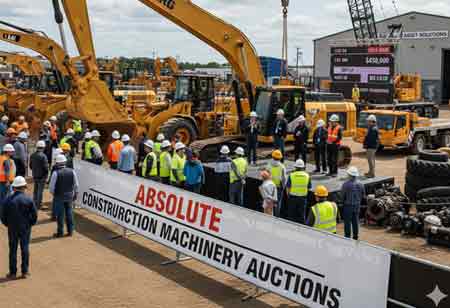Thank you for Subscribing to Construction Business Review Weekly Brief
Specials
- Apartment and Condominium Contractors Canada
- Decking Canada
- Architectural Glass Europe
- MEP APAC
- Construction Saudi Arabia
- German Apartment and Condominium Contractors
- Construction Law APAC
- Outdoor Construction
- Foundation Construction Canada
- MEP Canada
- Kitchen and Bath
- Cold Storage Construction APAC
- Precast Concrete Europe
- Construction Staffing Europe
- Pre-Construction Services
- Flooring System APAC
- Scaffolding Canada
- Swimming Pool Construction Canada
- Construction Management Canada
- Cold Storage Construction Canada
- Flooring Systems Europe
- Residential Construction
- Concrete Canada
- Construction Cladding Europe
- Construction Cladding APAC
- Concretes, Aggregates and Construction Materials APAC
- Concretes, Aggregates and Construction Materials Europe
- Commercial Contractors Europe
- Commercial Contractors APAC
- Dummy
- Construction Insulation, Coating and Waterproofing
- Construction Management APAC
- Landscaping Canada
- Construction Coating Europe
- Construction Tech Startups Europe
- Insulation Services Europe
- Mechanical Contractor Canada
- Mould Remediation and Testing Europe
- Swimming Pool Construction APAC
- Building Sealing Solutions Europe
- Construction Engineering Services
- Mechanical Electrical and Plumbing
- Roofing Systems Europe
- Architectural Glass APAC
- Startups APAC
- Construction Forensic and Owners Representative
- Flooring System
- Waterproofing APAC
- Wall Systems
- Safety and Compliance Europe
- Construction Bidding and Auctions
- Modular and Prefab Construction
- Architectural Glass
- Construction MENA
- Construction Demolition and Recycling Europe
- Modular Construction Europe
- Construction Interiors
- Steel Building APAC
- HVAC
- Doors and windows
- Construction Latam
- Building Information Modeling APAC
- Sustainable Construction APAC
- Building Restoration and Maintenance
- Commercial Contractors
- Specialty Construction
- Construction Engineering Canada
- Construction Engineering MENA
- Modular Construction Canada
- Modular Construction APAC
- Roofing and Siding Systems
- Workforce Management and Staffing
- Roofing Systems APAC
- Construction Consulting
- Steel Building Europe
- Construction Demolition and Recycling APAC
- Safety and Compliance APAC
- Concretes, Aggregates and Construction Materials
- Construction Cladding
Women Building a New Future for Saudi Construction
The construction industry in Saudi Arabia has traditionally been depicted as male-dominated, with the iconic image of a worker in a hard hat.

By
Construction Business Review | Thursday, April 18, 2024
Stay ahead of the industry with exclusive feature stories on the top companies, expert insights and the latest news delivered straight to your inbox. Subscribe today.
Saudi Arabia's Vision 2030 reform agenda promotes women's empowerment in the construction industry, leading to increased talent, innovation, and financial autonomy.
FREMONT, CA: The construction industry in Saudi Arabia has traditionally been depicted as male-dominated, with the iconic image of a worker in a hard hat. However, a notable shift has occurred, marked by a growing presence of women on construction sites throughout the Kingdom. This trend represents more than just a challenge to stereotypes; it signifies a broader effort to harness the complete capabilities of the Saudi workforce and foster a more inclusive and progressive future.
This progress stems from a convergence of factors. Vision 2030, the Kingdom's comprehensive reform agenda, actively champions women's empowerment. Legislative reforms have eliminated barriers to female employment, creating pathways for women to enter various sectors, including construction. Furthermore, a heightened recognition of the value of a diverse workforce is prompting the construction industry to embrace female talent.
The advantages of integrating women into construction are unequivocal. Research indicates that companies with more women in leadership roles often surpass their peers. Women bring fresh perspectives, innovative ideas, and a strong work ethic to the forefront. They demonstrate proficiency across construction roles, from architecture and engineering to project management and skilled trades.
The integration of women in the construction industry yields extensive advantages. It broadens the talent base and introduces diverse viewpoints, catalyzing innovation and enhancing operational efficiency within construction methodologies. Moreover, it catalyzes empowering women, nurturing financial autonomy, and facilitating individual development.
Substantial strides have been accomplished in advancing inclusivity within the construction sector in Saudi Arabia; however, the path towards achieving comprehensive inclusiveness remains a continuous endeavor. Various stakeholders play pivotal roles in furthering this objective:





